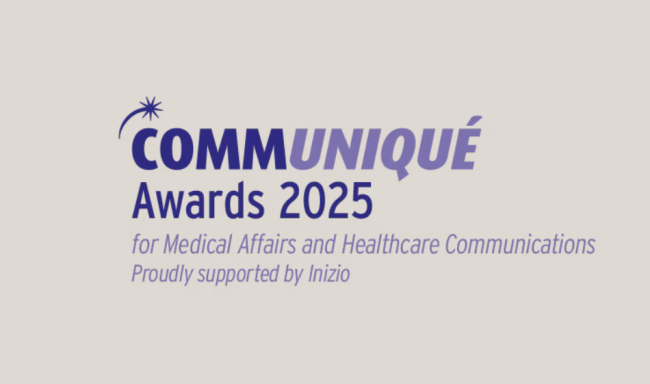Guided self-help for anxiety among Huntington’s disease gene expansion carriers - GUIDE-HD research study.
What is GUIDE-HD?
GUIDE-HD is a research study that involves offering people information on how to manage their anxiety, and providing therapy sessions by telephone, video-conferencing or email. GUIDE-HD uses evidence-based cognitive behavioural therapies (CBT) and is adapted to meet the specific needs of a Huntington's disease population.
Based on individual preferences, participants will receive either weekly telephone, video call or email guided psychological support across ten weeks, with a mental health facilitator who will be trained and supervised by the clinical psychologist. Support to help with any mild cognitive impairments will be included (e.g. use of external memory aids). Where applicable, carers/partners will be offered copies of the toolkits to support participants and will be offered a maximum of three individual sessions with the facilitators across the intervention period.
Who can get involved?
You can get involved in the study if you fit the following criteria:
- Gene positive
- With or without motor symptoms
- Experience anxiety
The aim is to involve 30 participants who have the Huntington's gene expansion (tested positive) and who experience anxiety. Participants will receive the guided self-help in addition to their usual care. Participants will be provided with a toolkit comprising written and/or electronic resources containing psychological techniques that are known to help reduce anxiety and designed specifically for Huntington's disease.
If you have a partner/carer who you would like to be involved in supporting you with the therapy, and they also would like to be involved, then they too can be part of this study.
How to get involved
Please contact Zaynah Khan on 07810 654 356 or by email on:
Thank you for reading this information and for considering taking part in this study.
This study is a joint venture between Leicestershire Partnership NHS Trust, Lancaster University and the European HD Network Psychological Interventions and Approaches Working Group. It is funded by the Jacques and Gloria Gossweiler Foundation.
What is the purpose of this study?
The first stage of the project is to see whether a new talking therapy aimed at reducing anxiety for Huntington’s disease gene carriers could be beneficial. Before carrying out a larger clinical trial to see if this therapy has benefits, they need to do a “feasibility trial”. This is like a smaller version of the project to see what people think about the therapy, and the project design, before undertaking a larger study involving more participants. This is an important and necessary step to see if people like the therapy and whether we need to make any changes or improvements.
Background to this study
Anxiety is a distressing problem experienced by around 71% of Huntington’s gene carriers. Anxiety damages quality of life and can worsen other Huntington’s symptoms. Therefore, helping people with their anxiety is really important. We know that talking therapies, such as guided self-help, can help people who are anxious.
Guided self-help involves offering people information on how to manage their anxiety, and providing therapy sessions by telephone, video-conferencing or email. However, there are several reasons why many Huntington’s gene carriers are not getting this help. Firstly, there is very little research to see if talking therapies work for Huntington’s disease. Secondly, Huntington’s gene carriers report that general self-help information for anxiety does not discuss issues that affect them (e.g. anxiety about children’s genetic risk and future loss of abilities). Thirdly, Huntington’s gene carriers with memory and thinking problems can find self-help information hard to use. Guided self-help has been adapted for conditions similar to Huntington’s. For example, in Parkinson's disease, guided self-help has included the links between Parkinson's symptoms and anxiety, and has provided extra sessions for carers. This approach could also work for people affected by Huntington’s disease.
Frequently asked questions
What will I be asked to do if I take part?
Firstly you will be contacted by telephone by a member of our research team to arrange an appointment. They will explain more about the study and answer any questions you might have. If you are still interested, then you will need to complete a written consent form to agree to your participation in the study – one of our research team will meet with you to do this. After taking written consent, the researcher will also take some details from you to check whether you meet the basic eligibility of the study.
Further to this, an initial meeting, lasting approximately one hour (either in person or remotely), with a clinical psychologist will be arranged at your convenience. They will ask you more information about your anxiety difficulties and this will determine whether you meet the full criteria for this study. At this stage you will also be asked to complete a brief assessment of your cognition (thinking and memory). The psychologist will answer any questions you have.
Further to this, if you meet all criteria and still wish to proceed with the study, a further meeting will be arranged (either in person or remotely), where you will be asked to complete a number of questionnaires to assess factors such as your mood and quality of life. This will take approximately 40 minutes.
After this stage you will be allocated, at random, to either the therapy group where you will receive the GUIDE-HD self-help for anxiety, or a control group, where you will not receive the GUIDE-HD but will continue with your usual treatments. Unfortunately, there is not the opportunity to change groups and so if you do decide to be involved, you may not receive the therapy. However, this is an important phase of testing new therapies to see if they work, and your involvement would be very valuable. All participants will receive treatment as usual and will not be suspended from any interventions currently offered or planned.
If you are allocated to the GUIDE-HD self-help for anxiety, you will be asked whether you have a friend/carer/family member who you would like to be involved to support you with the intervention. They will be asked to contact the research team to confirm if they wish to be involved. However, having a carer involved is not a requirement for the study.
The questionnaires you complete at the start of the study will be repeated at 3 further time points (2 weeks after the 10 week therapy / control group, then at 3 and 6 month follow-ups). At the 6 month follow-up you will also be asked to rate how acceptable you found the questionnaires and overall participation in the study (this will only take a few minutes).
If you received the therapy, you will also be invited at the two week follow-up to complete some rating scales about what you thought of the intervention, which will take approximately five minutes. Within a month after finishing the therapy, you will be invited for an interview to talk about your experience and what you thought of the therapy. This will last approximately one hour.
Will taking part in this study affect any of my usual treatments?
No. Participating in GUIDE-HD will not affect any of the care you receive. Any psychological support that you may receive as part of your usual care will not be affected either during or at the end of the study.
Are there any possible disadvantages or risks from taking part?
The assessments will take time and this could be inconvenient and potentially raise emotional issues. To help you with this, you will be able to express your preference over how the assessments will take place (e.g. electronically, telephone, in-person [covid-19 regulations permitting]).
For those who are allocated to the therapy, there can be discomfort in undertaking psychological interventions due to addressing anxiety issues and sharing sensitive details. You will not be obliged to share anything that you do not want to, though people often benefit from discussing their difficulties. The GUIDE-HD therapy will involve learning and practising techniques to help with anxiety. This will involve a time commitment, though you will be reimbursed for your inconvenience.
What are the possible benefits of taking part?
As this is a new approach, we do not know what the outcome will be, hence why we are conducting the research. Sometimes people find the process of undertaking research and contact with a research team a useful experience.
Will my General Practitioner/family doctor (GP) and care team be informed of my participation?
We would like your permission for us to contact your GP and, if applicable, a member of your healthcare team (e.g. HD nurse) about your involvement in the study. This is so they are aware that you might be receiving therapy aimed at reducing anxiety, and a contact point if a significant risk was raised during your involvement in the study.
How will we use information about you?
We will need to use information from you for this research project.
This information will include your:
- name
- contact details
People will use this information to do the research or to check your records to make sure that the research is being done properly. People who do not need to know who you are will not be able to see your name or contact details. Your data will have a code number instead.
We will keep all information about you safe and secure.
Once we have finished the study, we will keep some of the data so we can check the results. We will write our reports in a way that no-one can work out that you took part in the study.
What are your choices about how your information is used?
You can stop being part of the study at any time, without giving a reason, but we will keep information about you that we already have.
We need to manage your records in specific ways for the research to be reliable. This means that we won’t be able to let you see or change the data we hold about you.
Where can you find out more about how your information is used?
You can find out more about how we use your information below or by asking a member of the research team.
Will my taking part in the study be kept confidential?
All information provided in the study will be kept confidential. Exceptions to this would be if a disclosure involving significant risk of harm to self or others was made, in which case we would be obliged to inform the relevant authorities. This could include your GP or other health professional, social services, and in the case of a criminal act the police may need to be contacted. In the vast majority of cases we would expect this to be discussed with you beforehand.
All paper files that include your personal details (e.g. completed consent forms, enrolment log etc.) and encrypted USB digital recorder will be stored in the investigator site file which will be located in a locked cabinet in a locked office at Leicestershire Partnership Trust. All participants will be assigned a unique ID number and a separate document linking ID numbers to their actual identities will also be stored in a locked cabinet in a locked office at Leicestershire Partnership Trust. Electronic information will be stored securely on NHS computers and will be anonymised with ID numbers held on a separate file to those of your actual identity.
In terms of those who participate in the follow-up interview, a digital audio recording will be taken during each participant interview, and the research team will electronically transcribe all interviews and will use pseudonyms in place of identifiable information. Any information included in the interview that could be used to identify an individual participant will be removed by the research team. The digital audio-recording will be destroyed once the interview has been transcribed and checked for accuracy.
We may use direct quotes from your interviews in publications and reports on the study but all names and personally identifiable information will be removed.
Responsible members of Leicestershire Partnership NHS Trust and regulatory authorities may be given access to data for monitoring and/or audit of the study to ensure that the research is complying with applicable regulations.
Will I be reimbursed for taking part?
Yes, you will be financially compensated for your time and any inconvenience caused by completing the study. This will be offered as either cash or a voucher. The payment will be paid per evaluation session completed for the study, not for the intervention or eligibility sessions.
The payment schedule will be as follows: £10 per participant for each questionnaire session (ie. for baseline, 2 week, 3 month and 6 month follow-up) and £20 for the post-therapy interview session, if you decide to take part in this.
Any postage expenses will also be reimbursed or paid for by giving participants a stamp addressed envelope. You will also be reimbursed for any travel expenses.
What will happen after the study has ended?
As this is a feasibility study, we are unable to offer ongoing psychological intervention after the study has ended. In terms of your data, Leicestershire Partnership NHS Trust, as sponsor, is the data controller. This means that we, as Leicestershire Partnership NHS Trust researchers, are responsible for looking after your information and using it properly. We will use the minimum personally-identifiable information possible. We will keep identifiable information about you for 5years after the study has finished. We will store the anonymised research data and any research documents with personal information, such as consent forms, securely at the Leicestershire Partnership NHS Trust for 5 years after the end of the study.
What will happen if I don't want to carry on with the study?
Participation is entirely voluntary and participants may change their minds at a later stage. Withdrawal will not affect the care you receive from any relevant service. If you withdraw from the study, unless you state otherwise, any information which have been collected whilst you have been in the study will be used for the project.
If you decide to take part in the interview but you change your mind later, you can decide to withdraw your interview data up to two weeks after the interview. After this time the data will be pseudonymised and therefore it will not be possible to delete it after this point.
What will happen to the results of this study?
You will not be identified from any report or publication placed in the public domain. We intend to publish our research findings, present our findings at conferences, and feedback findings to participants themselves and to groups like the Huntington’s Disease Association.
Please inform a member of the research team if you would like a summary of the findings.
What if there is a problem?
If you wish to complain, or have any concerns about any aspect of the way you have been approached or treated during the course of this study, you should contact either LPT R&D at lpt.research@nhs.net or the patient experience team lpt.patient.experience@nhs.net or by phone to 0116 295 3435.
Who has reviewed the study?
All research in the NHS is looked at by an independent group of people, called a Research Ethics Committee, to protect participants’ interests. This study has been reviewed and given favourable opinion by Leicestershire South Research Ethics Committee.




